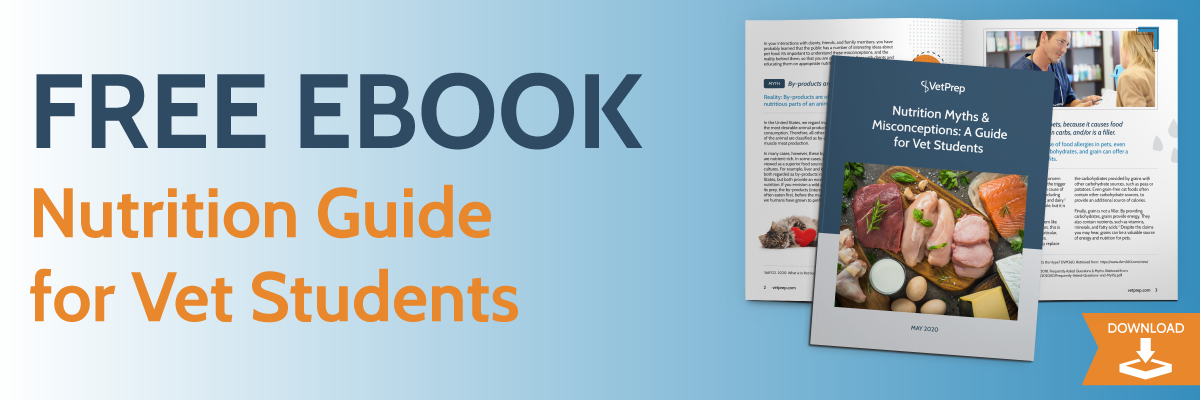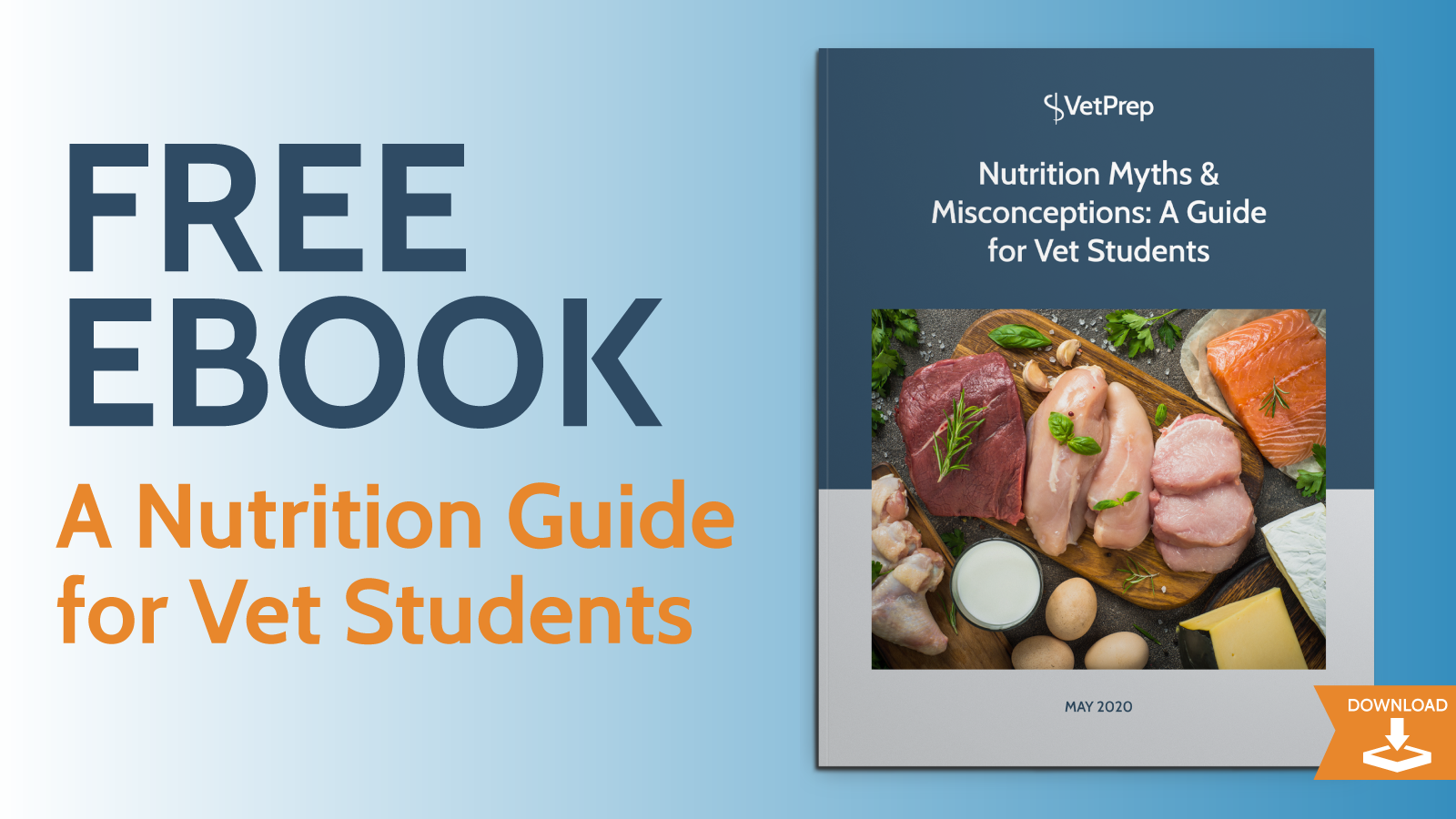
While small animal nutrition is relatively straightforward (“just feed a high-quality balanced diet and everything will be fine!”), equine nutrition is more complex. Nutritional quality of grass and hay can vary significantly; because forage constitutes the majority of a horse’s diet, it can be challenging to ensure that horses are receiving adequate nutrition.
Nutritional Requirements
There are six basic nutrient categories: carbohydrates, protein, fat, vitamins, minerals, and water. A complete nutrition program provides appropriate quantities of each of these nutrients.
Carbohydrates: Carbohydrates can be divided into two categories - structural (fiber) and non-structural (sugars and starches). Structural carbohydrates are found in grass and hay. Non-structural carbohydrates, found in grains, serve as a calorie-dense carbohydrate source. The equine digestive tract evolved primarily to process structural carbohydrates; non-structural carbohydrates should only be fed in small amounts to supplement calories.
Protein: For many horses, the protein found in forage is sufficient to meet dietary needs. A mature horse requires 8-12% crude protein in their diet; grass hay typically consists of 5-15% crude protein. In horses that are growing, lactating, or performing significant exercise, however, crude protein requirements can reach as high as 18%. These horses often need legume hay (which contains higher protein levels) or a supplement.
Fat: Horses do not have an established dietary requirement for fat. However, nutritionists do recommend that they receive small amounts of omega-3 and omega-6 fatty acids. Fats are also added to commercial feeds as a highly-digestible energy source.
Vitamins: Horses are capable of synthesizing many vitamins within the cecum and colon, including the B-vitamins, Vitamin C, and Vitamin K. Vitamin A is typically found in high-quality forage and hay, although supplementation may be required for horses that are consuming stored hay. Vitamin D is generated from sunlight, but supplementation is required for horses that do not receive at least 4 hours of sunlight per day or eat sun-cured hay.
Minerals: Horses require a number of minerals, in quantities dependent on life stage and lifestyle. All horses require calcium and phosphorus, in a calcium:phosphorus ratio of at least 1.5:1. Maintaining an appropriate calcium: phosphorus ratio is typically easy in grazing horses, due to the low phosphorus content of grass, but may be challenging in horses that are eating primarily grains, which tend to be high in phosphorus. Salt (NaCl) is also required for all horses, although dietary requirements are impacted by activity level and sweat production. Other required minerals include magnesium, potassium, iodine, copper, iron, zinc and selenium.
Water: A typical, sedentary adult horse requires at least 5 L/100 kg of body weight per day. This requirement may increase to as much as 10-15 L/100 kg in horses that are consuming dry hay or sweating heavily.
Keep it Simple: 7 Equine Nutrition Tips for Your Horse-Owning Clients
1. Horses require access to unlimited clean, fresh water
Water is the most important nutrient for horses. All horses should have constant access to clean, fresh water. Water troughs should be cleaned weekly to keep water clean. Additionally, water should be heated in the winter. This not only prevents ice accumulation, but also makes the water more appealing to horses to ensure that they drink adequate quantities.
2. High-quality forage is essential
Mature horses should eat approximately 1-2.5% of their body weight in forage per day and at least 50% of a horse’s daily energy should come from forage. Fresh grass is ideal, if available, but high-quality hay can also be used. Forage should only be limited in horses with a medical condition that requires decreased carbohydrate intake, such as Cushing’s disease or recurrent laminitis.
3. Concentrates are typically only needed for working, growing, pregnant, lactating, and senior horses
Sedentary adult horses often do well on forage and a vitamin/mineral supplement alone. In these horses, feeding a supplement can actually cause more harm than good. Horses that are active or generating new tissues, however, require caloric supplementation with a feed concentrate. Additionally, senior horses may have trouble maintaining their body condition on forage alone and may require supplementation. Different supplements are available, depending on the horse’s activity level and lifestage.
4. Horses that are not eating concentrate need a vitamin/mineral supplement
While adequate levels of vitamins and minerals are contained in concentrate, horses that are maintained on forage alone require vitamin and mineral supplementation. A ration balancer or vitamin-mineral premix can be used. While many horse owners think that a salt block is sufficient, these blocks primarily consist of salt and contain very low levels of vitamins and minerals.
5. Monitor body condition and adjust accordingly
A horse’s metabolic requirements may change based on weather, activity levels, and other factors. Owners should closely monitor their horse’s body condition and make dietary adjustments as needed to maintain a body condition score (BCS) of 5/9.
6. Diet changes should be performed gradually
Equine digestion is largely performed by hindgut microbes. It takes time for these microbes to adjust to new feed; therefore, food changes should always be made gradually.
7. Work with experts if needed
While the general guidelines above are sufficient for many horses, you may encounter situations where a more detailed nutritional analysis is warranted. In these cases, the first step is to submit a sample of the farm’s grass or hay for forage analysis. This task can likely be performed by your state agriculture department or extension service. Once this information is received, an equine nutritionist can help your client develop an optimal nutrition plan based on the horse’s life stage and activity level.
As a veterinarian, you will encounter a wide variety of horse owners, ranging from the low-maintenance horse owner that requires a push to add a vitamin/mineral supplement to the more involved horse owner who requires a push to stop over-supplementing their horses. It’s important to arm yourself with information that you can provide to horse owners, as well as information on where to turn for more in-depth assistance.



